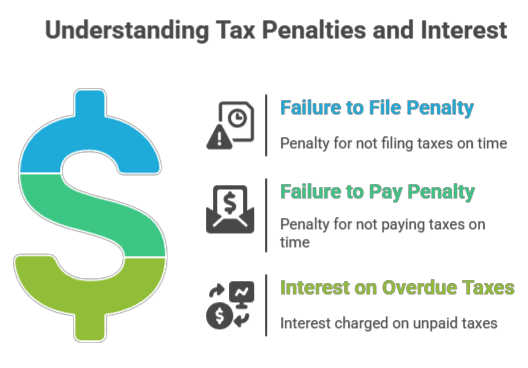Contributed by: MatthewD, FreeTaxUSA Agent, Tax Pro

Technically, you can file back taxes for any past year you are missing. However, in most situations, only the past six years are required to be in good standing with the IRS. The recommendation is to file all past due tax returns, regardless of whether you can pay past due taxes.
Use tax software
Using software simplifies the process— the calculations are done automatically, and the required forms are filled out for you.
The FreeTaxUSA tax software generally supports filing the past seven years of tax returns in its prior year products. Similar to e-filing a current year tax return, you can also e-file returns for the two preceding years, if you have an identity protection PIN (IP PIN) from the IRS. Otherwise, you must mail in your late prior year tax return.

Avoid penalties and interest
By filing your past due returns and paying now, you can reduce penalties and interest on your overdue taxes. Here are the potential penalties and interest:
- Failure to file penalty: Penalty assessed if you don’t file by the deadline. The penalty is calculated on how much tax you owe and how late the tax return filing is. The penalty is 5% of the tax due per month, capped at 25%.
- Failure to pay penalty: Penalty assessed if you don’t pay the tax when it’s due. This penalty is 0.5% of the tax due per month and can’t be more than 25% of your unpaid tax balance for the year.
- Interest on overdue taxes: Interest is charged when you don’t pay tax, penalties, or additional taxes by the deadline. The IRS starts assessing interest after the deadline.
Benefits of filing
- Claim refunds and credits: If you have overpaid taxes or qualify for a credit, you must file a tax return to claim a refund. Every year the IRS estimates over $1 billion goes unclaimed. You have three years from the original filing deadline to file a return and claim a refund.
- Increase your social security: If you’re self-employed, you must file a federal income tax return and report your self-employment income to the Social Security Administration to get credit towards your social security retirement or disability benefits.
- Loans: If you’re in the market for a home loan, lenders will ask for tax return transcripts.
- IRS tax timer: The IRS generally has three years from the date you filed a tax return to audit your tax return. If you never file a tax return, then the IRS can still access tax for that year indefinitely.
💡Tip: Alway use your most current mailing address to file prior year returns, even if you lived somewhere else in a prior year. That way the IRS can reach you by mail.
What if you owe more than you can pay?
After you finish filing your late tax return, if you owe taxes, the IRS will mail you a bill that includes the amount due along with any penalties and interest. If you owe more than you can pay, there are payment options available.
Payment plan: An IRS payment plan or installment agreement is easy and fast to set up. Use the IRS.gov website to apply for an online payment plan. If you qualify, this is a secure option to get your taxes paid when you owe more than you can pay. For additional information visit the IRS website.
Offer in compromise: An IRS offer in compromise is an option to settle your tax debt for less than the full amount. An applicant fills out an application and submits the proposal to the IRS. It’s recommended to seek out professional assistance when you feel this is the best solution for your tax situation. Use a tax professional who has experience with filing an offer in compromise.
Take away
Getting behind on filing your taxes is a real burden, impacting not only you, but also your job, business, and family. The IRS offers resources to help you get caught up and straighten things out. Tax professionals are available to assist, and FreeTaxUSA provides federal tax software for the past seven years at no cost to you.